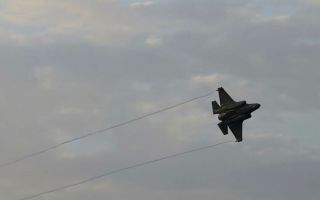Tri-Service
Comment: Why China Is Risking A Conflict With The USA
China’s island building in the South China Sea is undermining security in the region and could result in conflict according to the U.S. Defense Secretary Ash Carter.
This comes after a week in which the Pentagon stated that China had installed mobile artillery units on one of the islands.
Mr Carter, speaking at defence conference in Singapore, said “China has reclaimed over 2,000 acres, more than all other claimants combined.. and China did so in only the last 18 months.”
He said the United States was “deeply concerned” about the scale of the land reclamation and that it boosts “the risk of miscalculation or conflict.”
He also insisted that the US would continue to “fly sail, and operate” in the region despite Chinese insistence that Beijing is informed in advance of plans to enter certain areas in what are mostly regarded as international waters and air space.
“Turning an underwater rock into an airfield simply does not afford the rights of sovereignty or permit restrictions on international air or maritime transit.” Carter said.
Despite the brusque warning the comments were less hostile than some made by other US diplomats in recent years. A Chinese official responded by telling Reuters that “This year, Carter’s speech is more balanced…It’s helpful for building new ties between China and the U.S. as major powers.”
China is building on reefs, including the Spratly Islands which lie 500 miles off the Chinese coast, and turning them into islands.
Under the UN’s Law and Sea Convention this could allow it to try and claim a huge economic exclusion zone in which it controlled fishing, energy production, and even air travel authority in what is among the busiest transport routes in the world. They could also become permanent military bases.
The resource rich South China Sea is an area of tension as China, Taiwan, Malaysia, Brunei, Vietnam, and the Philippines all have overlapping claims.
Japan and China both claim islands in the East China Sea. This week they moved closer to an agreement to open a hotline between them to prevent incidents at sea escalating into war.
The Singapore conference is being held in the shadow of China’s new “open seas protection” policy, in which it switched its military posture from air defence to both offence and defence, and criticized countries which took “provocative actions” on what it called its reefs and islands.
The move underlines China’s intention to be the rule maker in the region.
This will inevitably mean it bumps up against the United States Navy, which is the de facto guardian of the sea lanes in the region including the strategically vital Strait of Malacca.
How that relationship is managed appears destined to be the most important diplomatic story of the 21st century.
Tim Marshall was formerly the Diplomatic and Foreign Editor at Sky News. He is now the Editor of the International Relations website www.thewhatandthewhy.com and can also be found tweeting at @Itwitius.









